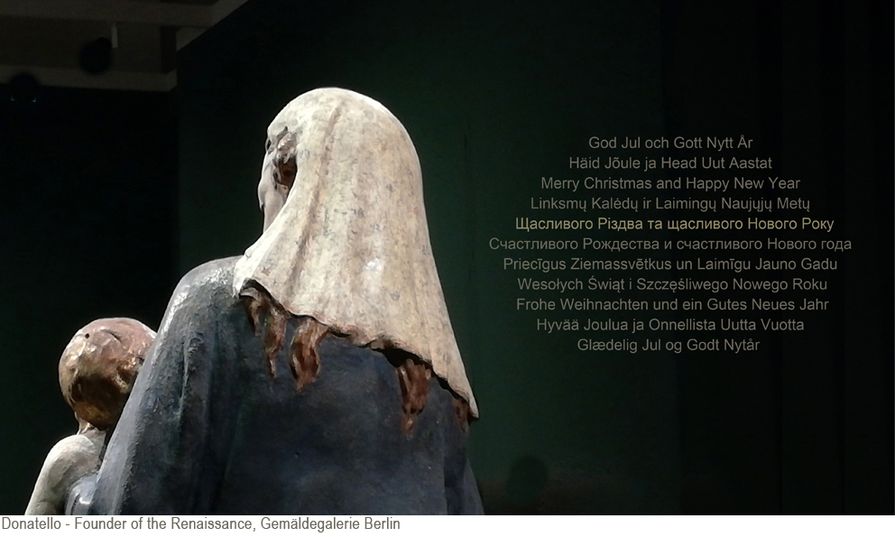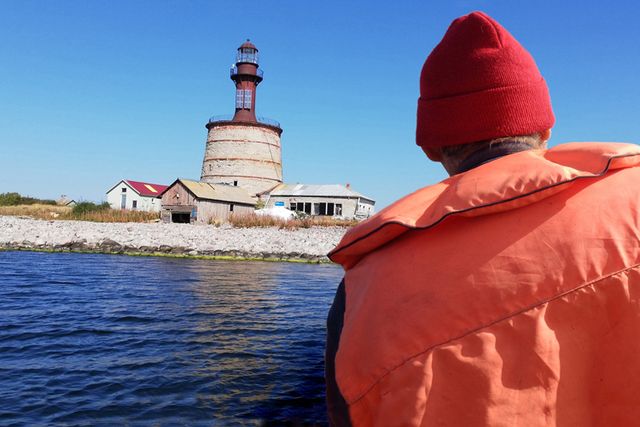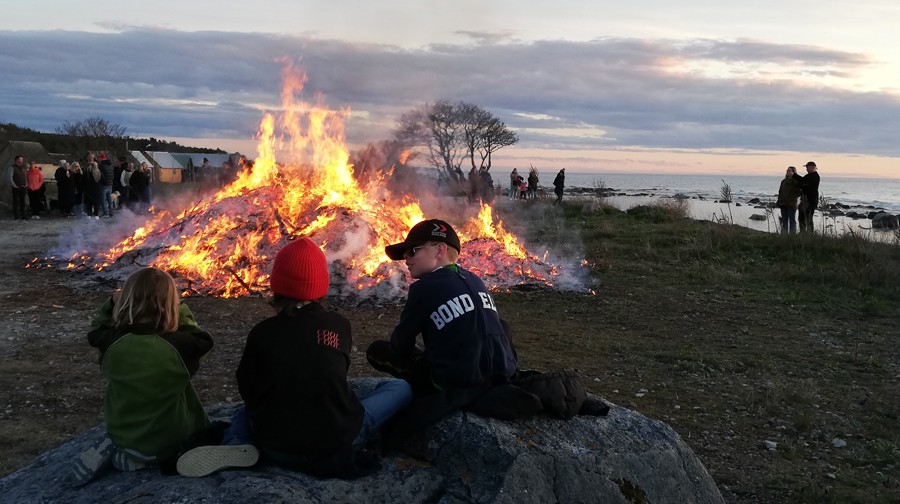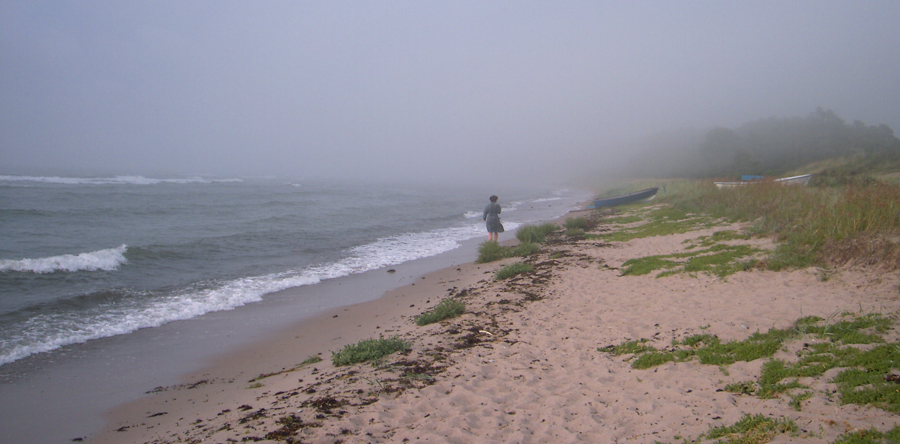News, as of August 4th, 2025
In the first half of 2025 we published the following texts:
Martin Andersen Nexø, Pelle Erobreren. Novel extract. In Danish original, English and German translation
Martin Andersen Nexø, Lotterisvensken. Short story. In Danish original and German translation by the author
Manfred Peter Hein (1931-2025), Die Vertriebenen. Poem. Swedish translation by Britta Klockars
Osip Mandelstam, ФИНЛЯНДИЯ (Finlandija). Prose text from 1912.
Osip Mandelstam, Над алтарем дымящихся зыбей. Poem (1910)
Bengt Pohjanen, Faravidin maa. Novel extract. Swedish translation by the author: Faravids rike - Kvänland
Ulrich Freiherr von Schlippenbach, Malerische Wanderungen durch Kurland. Travelogue. English translation by Lucas Shiller (Picturesque Journeys through Courland: The Village of Ģipka in Dundaga, Journey to Domesnes [Kolka], the Lighthouse there, the Beach, noteworthy Shipwrecks, The Heroic Feats of Sexton Fritz, the Village of Irbene in Dundaga)
Johann Gottfried Seume, Mein Sommer 1805. English translation from 1807: A Tour through a Part of Germany, Poland etc. Comment by Suvi Valli
Edith Södergran, Förhoppning. Poem. Russian translation by Natalya Tolstaya
We have edited the biographies of:
And we have added new essays by:
Markus Huss (1981-2024), Spöket på Gripsholms slott. Språkkonstnären och språkkritikern Kurt Tucholsky
Evelyn Juers, Baltic Blues. And Other Colours (from Sydney Review of Books).With photos by Antanas Sutkus © Galerie Susanne Albrecht, Berlin
Finally, we are excited to announce that we have begun cooperation with the Folk High School Litorina in Karlskrona, Blekinge, Sweden and are looking forward to a translators’ conference there in 2026.
Wishing you all the best
The Baltic Sea Library team
If you could support us:
Forum Mare Balticum e.V.
IBAN: DE33 8306 5408 0004 0072 98
[Deutsche Skatbank VR-Bank Altenburger Land, Schmölln: BIC GENO DEF1 SLR]
April 30th. Själsö, Gotland
News by 15th Dec, 2024
During this year we have included the following texts in our library:
Gunnar Ekelöf, En vallfart – 1938. Finnish translation by Caj Westerberg
Alexander Bestuzhev, Poezdka v Revel. Estonian translation by Voldemar Miller
August Thieme, Finnland (1808). Finnish translation by Teivas Oksala, English translation by Ritchie Robertson, Swedish translation by Lars and Mats Huldén, Russian translation by Mikhail Kostolomov
Anna Rydstedt, Hästen. Finnish translation by Christian Råbergh
Johann Gotfried Seume, Mein Sommer 1805. German original and Finnish translation by Suvi Valli
Ulrich Freiherr von Schlippenbach, Malerische Wanderungen durch Kurland. German original and Latvian trasnslation by Agris Dzenis
Manfred Peter Hein, Die Vertriebenen. Icelandic translation by Gauti Kristmannsson and Polish translation by Przemysław Chojnowski
Manfred Peter Hein, Ozersk. Icelandic translation by Gauti Kristmannsson and Polish translation by Przemysław Chojnowski
Matthias Alexander Castrén, Reseminnen (Resa till Lappland år 1838). Finnish translation by Aulis J. Joki and new Russian translation by Julia Kolesova
Hermann Sudermann, Das Bilderbuch meiner Jugend. Lithuanian translation by Jūratė Gusevienė
A new audio file:
Jan Erik Vold reading Tomas Tranströmer, Östersjöar in Norwegian. Recording by Susanne Skog, EMS Stockholm
And we have included new essays by:
Max Egremont, East Prussia's Whispering Past (from: Forgotten land)
Cornelia Jentzsch, Diese unerklärliche Stille. Jon Fosses Dichtung
Günter Karl Bose, Franz Kafka im Ostseebad Mütitz [1923]
Karl Schlögel, Unser Atlantis, unser Pompeji (to be released next year)
Wishing you all the best for the year to come!
The Baltic Sea Library team
If you could support us:
Forum Mare Balticum e.V.
IBAN: DE33 8306 5408 0004 0072 98
[Deutsche Skatbank VR-Bank Altenburger Land, Schmölln: BIC GENO DEF1 SLR]
News by 15th Dec, 2023
During the second half of this year we have been able to include our library the following:
New texts by Carl Michael Bellman, Tjenare Mollberg, hur är det fatt? (Swedish, Finnish translated by Carl Axel Gottlund, German translated by Felix Niedner)
Gunnar Ekelöf, En vallfart - 1938 (Swedish, commented by John Swedenmark. The Finnish translation by Caj Westerberg will follow soon)
Max Fürst, Gefilte Fisch. Eine Jugend in Königsberg (German) © Birute Stern, Jerusalem
Ludwig Passarge, Eine Wanderung auf der Kurischen Nehrung im Jahre 1868 (German)
Lennart Sjögren, Fågeljägarna / The Bird-Hunters (Swedish, English translated by Robin Fulton Macpherson)
Aino Kallas, Lasnamäen valkea laiva (Estonian, translated by Friedebert Tuglas)
Volter Kilpi, Alastalon salissa / Die Albatros (German, translated by Gabriele Schrey-Vasara)
We are looking for translators of the poem Hästen by Anna Rydstedt and we are trying to solve the copyright issue for the late translators of Thieme's poem sequence Finnland: Teivas Oksala and Lars and Mats Huldén.
We have improved the readability of our essay section and established new essays by:
Sigrid Damm, Vögel, die verkünden Land. Das Leben des Jakob Michael Reinhold Lenz
Eduard Müller, Die Fotografie hinter Johannes Bobrowskis Gedicht 'Bericht'
Wishing you all the best for the year to come!
The Baltic Sea Library team
Photo: Hanna Sjöberg, Gotland
Season's greetings
Dear friends and colleagues,
at the end of this saddening year with all its sufferings and threats close to our Baltic Sea region we wish to thank you all for your contributions and the interest and generosity you have shown during the years – and it is now 13 years since we started our virtual library - and to send you our season's greetings and best wishes for a hopefully lighter new year in 2023.
Yours,
Klaus-Jürgen Liedtke
chairman of Forum Mare Balticum e.V.
(grateful for your support in any way)

On the island of Keri (Estonia)
Visiting Keri saar in the Gulf of Finland in order to celebrate the Baltic Sea Day on 27 August, 2022.

When starting the virtual Baltic Sea Library in the year 2010 we found a picture of the lighthouse on the island of Keri, taken by a photograpoher Albert Kerstna from Tallinn, and chose it as header for our website.
Twelve years later members of our supporting association Forum Mare Balticum e.V. visited the island of our chosen logo and discovered that even the island of Keri is taken care of by a voluntary association, Keri selts (union). We interviewed Peep Rada, chair person and "keeper" of the island, and publish the interview with his consent.
Listen to this exciting story!

Minutes of the Baltic Sea Library's editors' meeting held on 14 June, 2022
It is now 4 years since we last met in Rostock. At this very moment the Baltic Sea Library hosts more than 100 essays, 500 texts by more than 350 authors. Due to the support from the Neustart Kultur-program by the German government translations to German have had priority during the last two years.
Klaus-Jürgen Liedtke informed about new texts included in the library:
- Jarosŀaw Iwaszkiewicz, Petersburg (in German, Jan Balbierz praised the translation by Lisa Palmes)
- Klaus Mann, Nördlicher Sommer. Reiseskizze (German)
- Paavo Haavikko, Audun ja jääkarhu (Radio play in Finnish)
- Friedbert Tuglas, Mälestused / Youth memories (in German)
- Nikolai Kharuzin, Russkie lopari (in Russian, German and Swedish).
Essays by
- Andreas Kelletat, Audun, Freya und Münchhausen. On Haavikko`s radio plays (in German)
and
- Christer Westerdahl, Nya tankar om labyrinter / New Thoughts about Mazes (in Swedish and German)
Proposals for new texts:
- Matthias Alexander Castrén, Midsummer on Aavasaksa and Travel thorugh Lapland in 1838
- Gunnar Ekelöf, Karelian Pilgrimage 1938 (copyright by Suzanne Ekelöf, his daughter)
- Poems by Carl Michael Bellman, Anna Rydstedt and Lennart Sjögren
Proposal by Johanna Domokos to open a translingualism subsite along the national literary categories, including such marvelous Baltic authors as Cia Rinne, Sabira Ståhlberg or Øyvind Rimbereid.
Proposal by Johanna Domokos and Sabira Ståhlberg: to hold a conference at ZiF (Center for Interdisciplinary Research), Bielefeld University, in a year ́s time, June 2023, arranged by Forum Mare Balticum and Langueflow (https://langueflow.wordpress.com/)
Theme: Latent and manifest multilingualism in Baltic Sea Literature/Library texts
The Baltic Sea Region is not only an area with dramatic geo-, global and state-political developments, but also a cultural area subject to constant multilingual interference. The aim of this conference is to shed light on the linguistic strategies these literatures manifest from covert/hidden code-switching to overt/manifest modes. The organizers suggest participants investigating the authors and texts included in the online library edited by Klaus-Jürgen Liedtke (http://www.balticsealibrary.info), but analysis of other authors and texts are welcome, too. After peer-review editing of the presentations, suitable studies can be published online at: https://www.balticsealibrary.info/essays.html
We will also investigate the possibilities for a translation fund and for producing a podcast about the Baltic Sea Library.
The political situation had made us feel paralyzed and upset and we feel with Polina Lisvskaya in St. Petersburg.
Some four members of our supporting association Forum Mare Balticum e.V. will travel from Tallinn to Keri Island on 26 August (if weather allows, the boat can only take ten people at once).
Page 1 of 9



